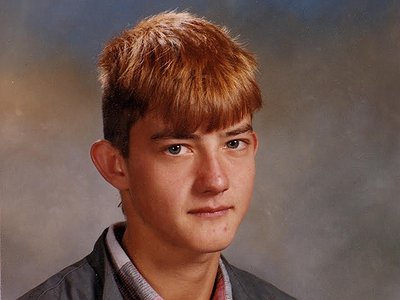Could you take us through a day in your life, from a possible morning routine through to your work? Do you have a fixed schedule? How do music and other aspects of your life feed back into each other - do you separate them or instead try to make them blend seamlessly?
There isn’t a day that’s the same for me. I make films. There are the four lovely children I worry about and love all of the time. My friends. All of the travel. I listen to much music and spoken word podcasts and recordings. It’s all working for each other I guess. That’s three questions… wait… there’s questions everywhere here! See? This is that which happens when commerce and music collide. What is said to be 15 questions, becomes a ruse…
Could you describe your creative process on the basis of a piece or album that's particularly dear to you, please? Where did the ideas come from, how were they transformed in your mind, what did you start with and how do you refine these beginnings into the finished work of art?
Sister Rotunda & Sister Obliqua were made by the writing which followed immediately after getting beaten and bruised in business shenanigans I was involved with at the time. At that time, I was reading momentous novels such Hermann Broch’s The Sleepwalkers & A Man Without Qualities by Robert Musil. Seeing the world through the eyes of these characters and situations helps the pen move in an exciting way, very much out of control and it is surprising the writer at every turn. I never am involved in the completion of a work. I wish it would never end and I can’t be bothered with it becoming a product.
There are many descriptions of the ideal state of mind for being creative. What is it like for you? What supports this ideal state of mind and what are distractions? Are there strategies to enter into this state more easily?
Red wine. More red wine… and it’s not a good idea when it’s too cheap. Drink well and with honour and understanding.
How is playing live and writing music in the studio connected? What do you achieve and draw from each experience personally? How do you see the relationship between improvisation and composition in this regard?
I haven’t played live music for many years. I perform at film Q&A sessions now it seems. Talking. In these situations, I find myself -whatever the subject - mining for a rightful humour and as much audience engagement as is possible! This assists a wing and a prayer.
How do you see the relationship between the 'sound' aspects of music and the 'composition' aspects? How do you work with sound and timbre to meet certain production ideas and in which way can certain sounds already take on compositional qualities?
You need a setting that allows for total immersion in bringing art to life. Not easy to find. You could say that sound is the mating call and the composition is the choice of trouser! Maximum reduction and a rejection of fashionable tract.
Our sense of hearing shares intriguing connections to other senses. From your experience, what are some of the most inspiring overlaps between different senses - and what do they tell us about the way our senses work? What happens to sound at its outermost borders?
I have been enjoying the privilege of working with the film “Tony Conrad: Completely in the Present” for a few years now. This followed the great and unique pleasure of working with Tony himself. His lessons in what the senses are and how they are intuitively used were seismic moments for me. Along with an introduction in to a history of music and sound that blew my mind. Everyone should engage in their own way with what this all means. Using Tony as an elemental example in approach and response won’t go unrewarded.
Art can be a purpose in its own right, but it can also directly feed back into everyday life, take on a social and political role and lead to more engagement. Can you describe your approach to art and being an artist?
How does an art life make for a good life? My dear friend, Graham Crowley, a brilliant painter and philosopher, asked me this question once. I lead my life in to the direction of answering this positively and with a great gusto for the very and every aspect of living. The politics of this come with sideswipes and singular challenges, multiplying if they so choose in all ways possible. I love my family, friends and associates. Being out of one’s depth is a serious thing.
It is remarkable, in a way, that we have arrived in the 21st century with the basic concept of music still intact. Do you have a vision of music, an idea of what music could be beyond its current form?
Is it intact? If it is, then let’s break it! Crikey, if people like Carlo Gesualdo, Anthony Braxton, Tony Conrad and Charlemagne Palestine and Todd Rittmann among so many others - if they haven’t already done enough to point us in the direction of finding music where it’s not just total crap…


